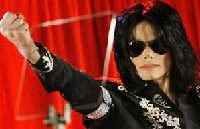Singer-songwriter with everything in the world
By Chen Nan ( China Daily ) Updated: 2013-11-01 10:09:20
|
Singer Chris Brown pleads not guilty to assault that broke man's nose |
During her concert tour, some audiences shouted at her to stop singing English songs. When she was invited to perform at the CCTV Spring Festival Gala early this year, she was asked to perform with a Chinese actor and she wasn't allowed to play her guitar.
"I didn't know the actor and I was not allowed to sing the whole song," she says, recalling the unpleasant experience.
Unlike her debut days when she was nervous, Qu walks with her head up high now as an original singer-songwriter in her own right.
With big black curls, dark eyeliner, and a hint of rasp in her voice, Qu walked into the office of Universal Music located in downtown Beijing recently filled with confidence.
"The first album was not completely what I wanted. I don't think people know who exactly I am," she says. "For the audiences, I am a girl from Harbin with a strong Dongbei (northeast) accent, who was lucky enough to become known overnight for one song, You Exist in My Song. But it's not the whole truth."
For the second album, Qu has participated in the whole production from writing to composing and producing. "This album speaks for me," she says. "When you know who I am, you will understand why I talk like this and why I think like this. I sing my life. My songs are my biography."
With the new album, she was invited to sing at a CBC music event in Canada in August, another big boost for her confidence.
"When I moved to Canada in 2000, I started watching CBC, where many famous singer-songwriters performed and told their stories. Now, when I turn on the TV, I see myself sitting there playing the piano and singing my own songs. I feel so proud that I can tell my story as a Chinese singer-songwriter," she says。
|
|
|
|
|
|
|
|























 Raymond Zhou:
Raymond Zhou: Pauline D Loh:
Pauline D Loh: Hot Pot
Hot Pot Eco China
Eco China China Dream
China Dream China Face
China Face





